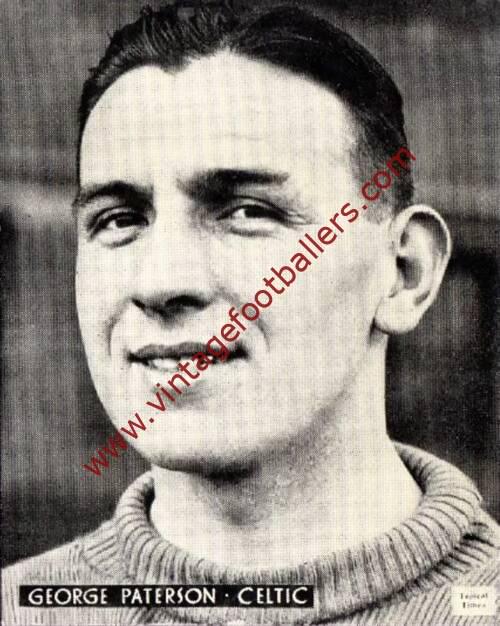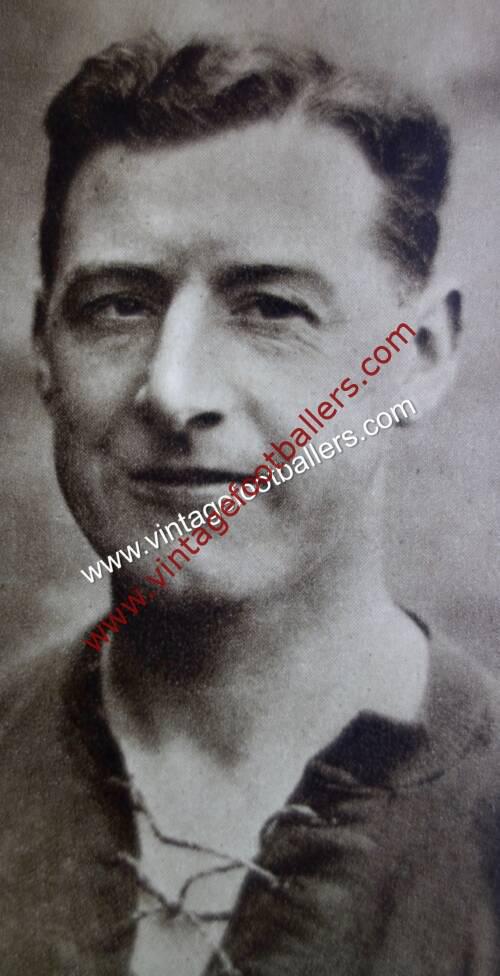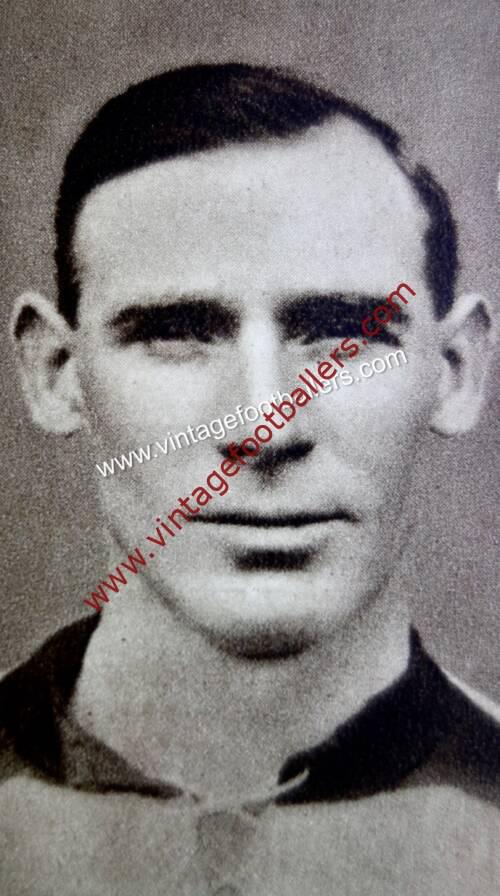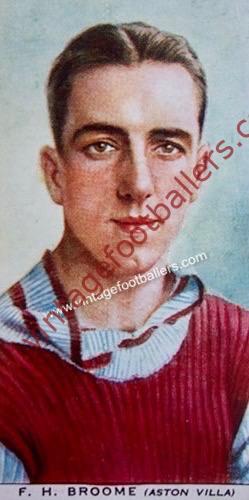Description
Denny, Stirlingshire born left half George Paterson began his career with Denny YMCA in 1929, playing for Carrowbank Juveniles in 1930 and Dunipace Thistle in 1931. He arrived at Glasgow Celtic from Dunipace in March 1932. Originally signed as a centre forward he made his Scottish League debut in April 1933 when, as a replacement for the injured Jimmy McGrory, he scored a debut goal in a 2-1 home victory over Airdrieonians.
The following season saw Paterson make a solitary first team appearance and by the start of the 1934-35 campaign he had been converted from a centre forward to left half. It was in this position that Paterson would establish himself as one of the finest talents in the Scottish game. Coupling hard work and intelligence he became an integral part of the Celtic side of the mid to late 1930’s. Composed in possession, Paterson’s fine touch and excellent vision were to be the cornerstone for many Celtic victories.
There was arguably no finer passer in the game. His distribution was graceful, precise and frequently effective. He would zip the ball across the turf with pin point accuracy. Passes were rarely wasted and possession seldom surrendered. Paterson was a natural athlete and off the ball his tireless running and tenacious tackling meant their was few weaknesses to his game and the Celtic supporters were quick to take George to their hearts. Alongside Chic Geatons and Wille Lyon, Paterson formed a formidable midfield triumvirate. In October 1935 he was called up by The Scottish League, playing against The Irish League in a 3-2 victory in Belfast, one of two League caps he would gain, the second coming in November 1938 against The Football League in a 3-1 defeat at Molineux. In October 1938 he was awarded a full international cap for Scotland in a 2-0 victory against Ireland at Windsor Park, Belfast, and he won a further cap in January 1946 when he played against Belgium after the Second World War. Before then he had helped Celtic claim two Scottish League Championships, a Scottish Cup and the 1938 Empire Exhibition trophy. It was an impressive haul of honours, but the battles of the football field were soon to take on a grave irrelevance.
The outbreak of the Second World War caused an abrupt interruption to his Celtic career as he swapped his hooped jersey for the uniform of the RAF. During the War years he would make sporadic appearances for the Bhoys but also played as a guest for the likes of Arsenal, Leicester and Blackpool . The highlight of George’s nomadic wartime football career came on New Year’s Day 1945 when he scored a stunning long range goal at Ibrox to give Celtic a then all too rare victory over Rangers. In 1946, with the War ended, George returned home to Parkhead on a full-time basis and this hugely popular figure succeeded Bobby Hogg as Celtic captain.
To celebrate the end of the War the Scottish FA had organised a one-off Summer tournament, the Victory Cup. Celtic’s record in unofficial wartime competitions had been abysmal, so it was a considerable surprise when The Hoops impressively progressed to a semi-final showdown with Rangers on June 1st. With keeper Willie Miller in supreme form Celtic would hold out for a 0-0 draw and a replay was organised for a few nights later. On a blustery evening a crowd of 45,000 took their place on the vast slopes of Hampden. What they were about to witness was not just one of the most infamous Glasgow derby clashes of all time but also the sad end of Paterson’s Celtic playing career. The replay would be officiated by referee Matthew Dale. An unpopular figure among the Celtic support, shipyard-worker Dale was well known for his strong affinity to Rangers.
Soon after blowing for the start of the Victory Cup replay Dale caused concern among the Celtic ranks with a string of highly dubious decisions in favour of Rangers. Then after just 10 minutes the Ibrox side scored the opening goal. The Hoops cause was damaged further when forwards Jimmy Sirrell and Jackie Gallacher were left hobbling and ineffective after robust challenges from Rangers defenders. Indeed Celtic’s anger was inflamed by the fact that Dale had ignored the obvious foul by Rangers full-back Shaw which had left Sirrell limping. Dale then awarded another dubious free-kick to Rangers. It was at that point George Paterson began to realise that it was more than bias that was influencing the referee’s performance.
When placing the ball for the free kick Dale lost his balance and fell to the floor. Paterson leaned down and helped the referee to his feet. As he pulled the official up from the turf The Hoops skipper caught the smell of alcohol from Dale’s breath. George immediately inquired of the ref if he was feeling alright. Dale responded to this request by issuing Paterson with a caution. By half-time the entire Celtic team were adamant that Dale was in no fit state to continue. They complained bitterly to manager Jimmy McGrory and Parkhead board member Robert Kelly immediately sought out SFA secretary George Graham.
Kelly informed Graham of his players suspicions and requested urgent action be taken. Graham assured Kelly the matter would be dealt with promptly. But as the teams took to the field for the second-half they were joined once again by Mr Dale. With twenty minutes of the match remaining Celtic were still trailing Rangers by that early goal. The Hoops were becoming increasingly frustrated as Dale continued to give virtually every decision in favour of Rangers. If that wasn’t enough they were now playing with nine men following the withdrawal of the injured Sirrell and Gallagher. The sense of injustice carried by the Celtic team since the earliest moments of the match then became simply too much to bear when Dale awarded Rangers the softest of penalties. The official had pointed to the spot after Rangers forward Willie Thronton attempted to connect with a cross by diving head first towards the ball.
It was the final insult for Paterson, who collected up the ball and refused to hand it over to Dale until he had made his protest to the referee. Unimpressed with this challenge to his authority Dale ordered the Celtic man from the field. Exactly what Paterson said to Dale remains uncertain. Contemporary accounts claim he simply told Dale: “Why don’t you keep the ball, you deserve it.” Later retelling of the event suggest George was a bit more direct in his language, instructing Dale to shove the ball up his rearend. While the Celtic captain had been protesting with the referee Hoops full-back Jimmy Mallan – an infinetley more fiery figure than his skipper – furiously scrubbed out the penalty spot with his boots. When Dale eventually went to place the ball for the kick Mallan innocently declared: “There’s no penalty spot ref” and then booted the ball down the pitch.
He too was ordered off. By now chaos reigned on the terraces and the pitch. As the Celtic players debated the prospect of walking off, a Celtic fan ran onto the field and swung a bottle towards Dale before eventually being wrestled off the park. Rangers would finally net the penalty and play out the next 15 minutes against the seven men of Celtic quite happy not to inflict any further damage on their stunned opponents. What should have been an enthralling cup tie had descended into farce. Celtic were furious at the actions of Dale and at the fact the SFA had allowed him to take charge of the game when he was clearly in no fit state to do so.
However any hope that the SFA would belatedly put right this wrong was soon dashed. Dale went unpunished while at the next meeting of the SFA’s referee committee George Paterson and Jimmy Mallan would each receive a 3 month ban. Mallan had some history as a hot-head but Paterson’s suspension was ridiculously harsh for a man who had played for 11 seasons without picking up a single caution. It says everything of George’s integrity and honesty that Robert Kelly – that most strict of disciplinarians – would comment years later: “The most unfair punishment ever meted out by the referees committee was to George Paterson. The cruelty of his sentence was shattering to both player and club.“
Now he was suspended for three months for what was little more than dissent. It was a terrible and appalling injustice. George Paterson was a man of proven integrity and fairness. A man who prided himself on his honesty and decorum George fell into a depression. Deeply distraught he struggled to come to terms with his treatment and questioned his very future in the game. Before his ban was over he was reluctantly transferred to First Division Brentford in exchange for Jerry McAloon on October 4th 1946. It was a cruel and bitterly unfair end to George’s playing career for The Hoops after 18 goals in 283 appearances.
He made his Football League debut for The Bees against Charlton Athletic in November, playing another three years at Griffin Park, making 66 appearances for the club. He then became player-manager of Yeovil and Petters United between 1949 and 1951, and managed Stirling Albion from 1951 to 1952. He later returned to Celtic as a coacb in 1952 and worked as a trainer and scout with the reserves at Parkhead.






